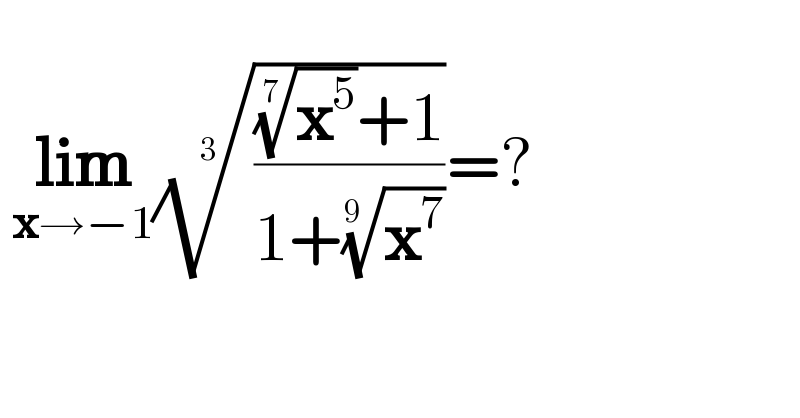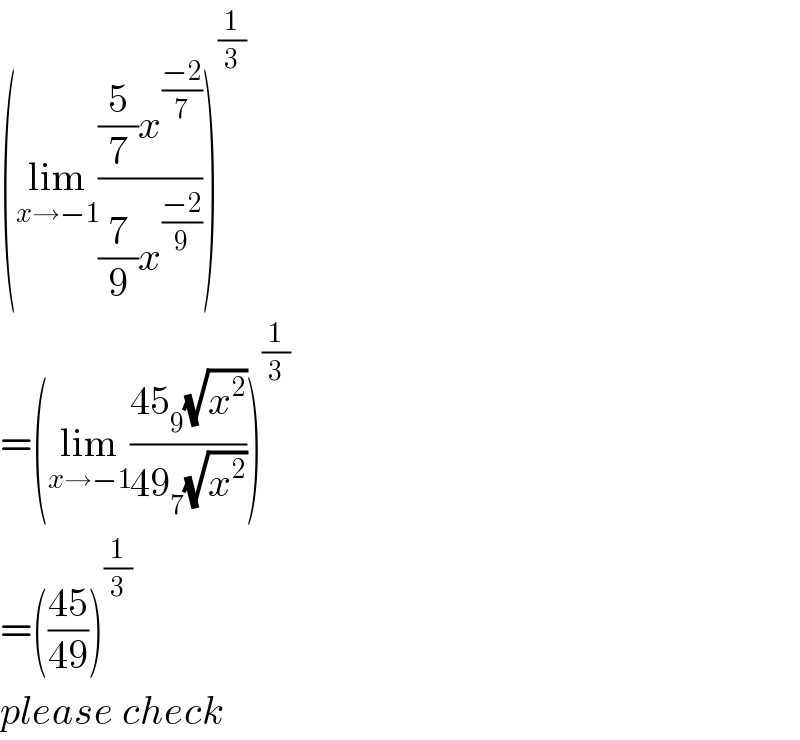
Question and Answers Forum
Question Number 67031 by hmamarques1994@gmai.com last updated on 21/Aug/19

Commented by Tony Lin last updated on 22/Aug/19

Commented by hmamarques1994@gmail.com last updated on 22/Aug/19

Commented by mathmax by abdo last updated on 22/Aug/19

Commented by Tony Lin last updated on 22/Aug/19
![L′Hospital rule: if lim_(x→x_0 ) f(x)=lim_(x→x_0 ) g(x)=0 and lim_(x→x_0 ) ((f′(x))/(g′(x))) exists ⇒lim_(x→x_0 ) ((f(x))/(g(x)))=lim_(x→x_0 ) ((f′(x))/(g′(x))) if lim_(x→x_0 ) f(x)=±∞, lim_(x→x_0 ) g(x)=±∞ and lim_(x→x_0 ) ((f′(x))/(g′(x))) exists ⇒lim_(x→x_0 ) ((f(x))/(g(x)))=lim_(x→x_0 ) ((f′(x))/(g′(x))) if lim_(x→x_0 ) f(x) exists lim_(x→x_0 ) [f(x)]^n =[lim_(x→x_0 ) f(x)]^n ⇒Power Law of Limit or we can use Composition Law to know if f is continuous at lim_(x→x_0 ) g(x) then lim_(x→x_0 ) f(g(x))=f(lim_(x→x_0 ) g(x))](Q67094.png)
